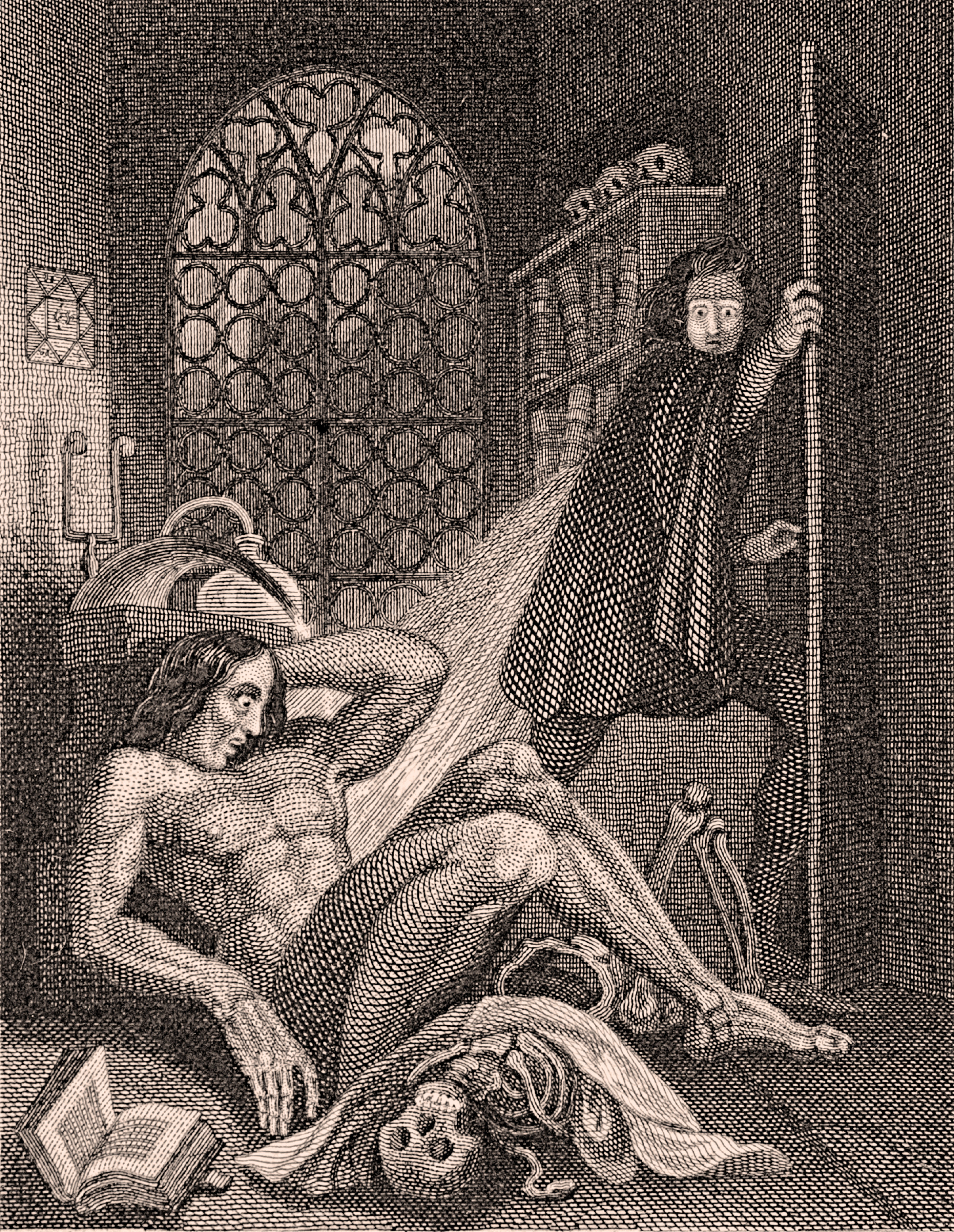
“Despite his conceits,
vanities, and lapses in scientific professionalism, Victor Frankenstein comes
very close to succeeding… to pulling off something flawed but wonderful. What
dooms him isn’t boldness, or his willingness to challenge the unknown, but a
simpler character flaw — petty cruelty. Unable to feel for his creation, he
treats the poor monster shabbily, teaching it how to be as heartless as he
is.[…] Mary Shelley wasn’t saying, “Hands off!” She was saying, “Be kind, when
you create. Godlike power demands godlike wisdom.” David Brin, on Mary Shelley’s
Frankenstein
In May 1816, Mary Godwin, Percy
Shelley, and their son traveled to Geneva with Claire Clairmont. They planned
to spend the summer with the poet Lord Byron, whose recent affair with Claire
had left her pregnant.
The party arrived at Geneva on
14 May 1816, where Mary called herself "Mrs Shelley". Byron joined
them on 25 May, with his young physician, John William Polidori, and rented the
Villa Diodati, close to Lake Geneva at the village of Cologny; Percy Shelley
rented a smaller building called Maison Chapuis on the waterfront nearby. They
spent their time writing, boating on the lake, and talking late into the night.
"It proved a wet, ungenial
summer", Mary Shelley remembered in 1831, "and incessant rain often
confined us for days to the house". Sitting around a log fire at Byron's
villa, the company amused themselves with German ghost stories, which prompted
Byron to propose that they "each write a ghost story". Unable to
think of a story, young Mary Godwin became anxious: "Have you thought of a
story? I was asked each morning, and each morning I was forced to reply with a
mortifying negative."
During one mid-June evening, the discussions
turned to the nature of the principle of life. "Perhaps a corpse would be
re-animated", Mary noted, "galvanism had given token of such
things". It was after midnight before they retired, and unable to sleep,
she became possessed by her imagination as she beheld the grim terrors of her
"waking dream", her ghost story:
“I saw the pale student of
unhallowed arts kneeling beside the thing he had put together. I saw the
hideous phantasm of a man stretched out, and then, on the working of some
powerful engine, show signs of life, and stir with an uneasy, half vital
motion. Frightful must it be; for supremely frightful would be the effect of
any human endeavour to mock the stupendous mechanism of the Creator of the
world
She began writing what she
assumed would be a short story. With Percy Shelley's encouragement, she
expanded this tale into her first novel, Frankenstein: or, The Modern
Prometheus, published in 1818.
She later described that summer
in Switzerland as the moment "when I first stepped out from childhood into
life". The story has been fictionalised several times and formed the basis
for a number of films.
In September 2011 the
astronomer Donald Olson, after a visit to the Lake Geneva villa the previous
year, and inspecting data about the motion of the moon and stars, concluded
that her waking dream took place "between 2am and 3am" 16 June 1816,
several days after the initial idea by Lord Byron that they each write a ghost
story.
Since Frankenstein was
published anonymously in 1818, readers and critics argued over its origins and
the contributions of the two Shelleys to the book. There are differences in the
1818, 1823, and 1831 editions, and Mary Shelley wrote, "I certainly did
not owe the suggestion of one incident, nor scarcely of one train of feeling,
to my husband, and yet but for his incitement, it would never have taken the
form in which it was presented to the world."
She wrote that the preface to
the first edition was Percy's work "as far as I can recollect." James
Rieger concluded Percy's "assistance at every point in the book's manufacture
was so extensive that one hardly knows whether to regard him as editor or minor
collaborator" while Anne K. Mellor later argued Percy only "made many
technical corrections and several times clarified the narrative and thematic
continuity of the text."
First draft of Frankenstein
Frankenstein, like much Gothic
fiction of the period, mixes a visceral and alienating subject matter with
speculative and thought-provoking themes.[179] Rather than focusing on the
twists and turns of the plot, however, the novel foregrounds the mental and
moral struggles of the protagonist, Victor Frankenstein, and Shelley imbues the
text with her own brand of politicised Romanticism, one that criticised the
individualism and egotism of traditional Romanticism. Victor Frankenstein is
like Satan in Paradise Lost, and Prometheus: he rebels against tradition; he
creates life; and he shapes his own destiny. These traits are not portrayed
positively; as Blumberg writes, "his relentless ambition is a
self-delusion, clothed as quest for truth". He must abandon his family to
fulfill his ambition.
“They
say ignorance is bliss…. they’re wrong” Franz
Kafka
“What
is necessary to change a person is to change his awareness of himself.” Abraham Maslow
Otherwise
Jane Kenyon
I got out of bed
on two strong legs.
It might have been
otherwise. I ate
cereal, sweet
milk, ripe, flawless
peach. It might
have been otherwise.
I took the dog uphill
to the birch wood.
All morning I did
the work I love.
At noon I lay down
with my mate. It might
have been otherwise.
We ate dinner together
at a table with silver
candlesticks. It might
have been otherwise.
I slept in a bed
in a room with paintings
on the walls, and
planned another day
just like this day.
But one day, I know,
it will be otherwise.





